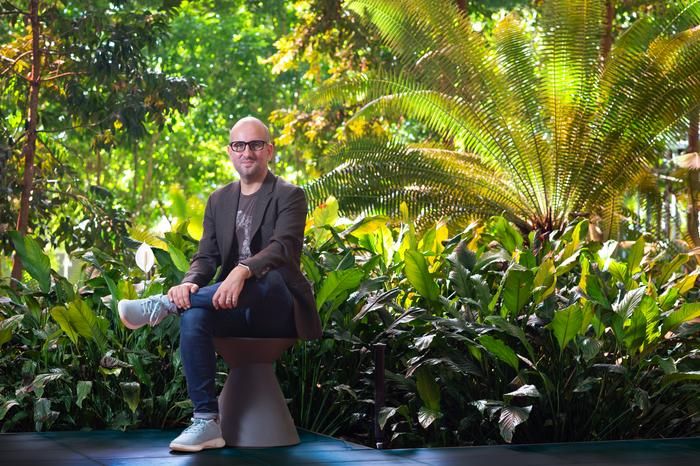An international research team has found almost a million potential sources of antibiotics in the natural world.

Credit: QUT
An international research team has found almost a million potential sources of antibiotics in the natural world.
Research published in the journal Cell by a team including Queensland University of Technology (QUT) computational biologist Associate Professor Luis Pedro Coelho has used machine learning to identify 863,498 promising antimicrobial peptides – small molecules that can kill or inhibit the growth of infectious microbes.
The findings of the study come with a renewed global focus on combatting antimicrobial resistance (AMR) as humanity contends with the growing number of superbugs resistant to current drugs.
“There is an urgent need for new methods for antibiotic discovery,” Professor Coelho, a researcher at the QUT Centre for Microbiome Research, said. The centre studies the structure and function of microbial communities from around the globe.
“It is one of the top public health threats, killing 1.27 million people each year.”
Without intervention, it is estimated that AMR could cause up to 10 million deaths per year by 2050.
“Using artificial intelligence to understand and harness the power of the global microbiome will hopefully drive innovative research for better public health outcomes,” he said.
The team verified the machine predictions by testing 100 laboratory-made peptides against clinically significant pathogens. They found 79 disrupted bacterial membranes and 63 specifically targeted antibiotic-resistant bacteria such as Staphylococcus aureus and Escherichia coli.
“Moreover, some peptides helped to eliminate infections in mice; two in particular reduced bacteria by up to four orders of magnitude,” Professor Coelho said.
In a preclinical model, tested on infected mice, treatment with these peptides produced results similar to the effects of polymyxin B – a commercially available antibiotic which is used to treat meningitis, pneumonia, sepsis and urinary tract infections.
More than 60,000 metagenomes (a collection of genomes within a specific environment), which together contained the genetic makeup of over one million organisms, were analysed to get these results. They came from sources across the globe including marine and soil environments, and human and animal guts.
The resulting AMPSphere – a comprehensive database comprising these novel peptides – has been published as a publicly available, open-access resource for new antibiotic discovery.
Professor Coelho’s research was conducted as part of his ARC Future Fellowship through the QUT School of Biomedical Science, in collaboration with the Cesar de la Fuente laboratory at the University of Pennsylvania, Fudan University, the European Molecular Biology Laboratory and APC Microbiome Ireland.
Journal
Cell
Method of Research
Experimental study
Subject of Research
Animals
Article Title
Discovery of antimicrobial peptides in the global microbiome with machine learning
Article Publication Date
5-Jun-2024
COI Statement
C.d.l.F.-N. provides consulting services to Invaio Sciences and is a member of the Scientific Advisory Boards of Nowture S.L. and Phare Bio. The de la Fuente Lab has received research funding or in-kind donations from United Therapeutics, Strata Manufacturing PJSC, and Procter & Gamble, none of which were used in support of this work. An invention disclosure associated with this work has been submitted.



